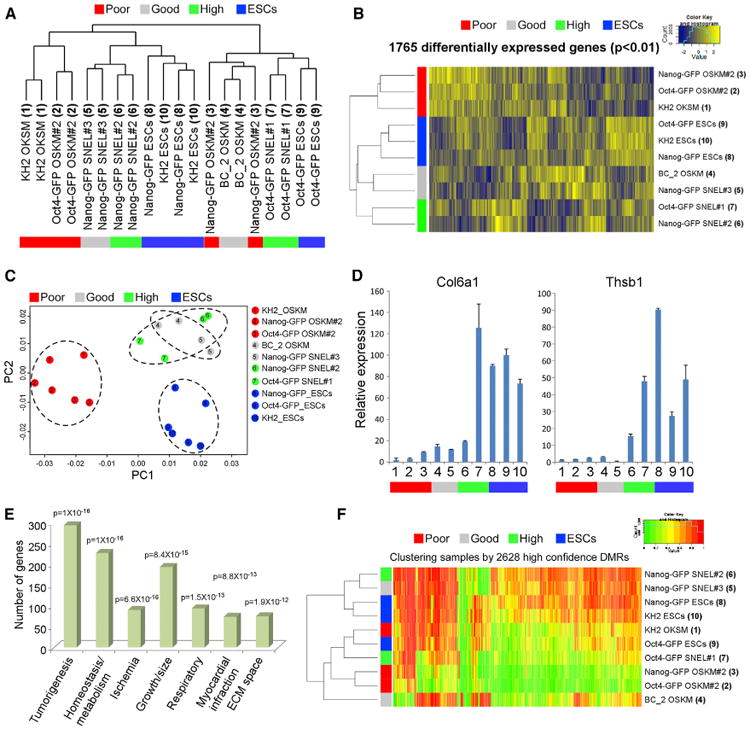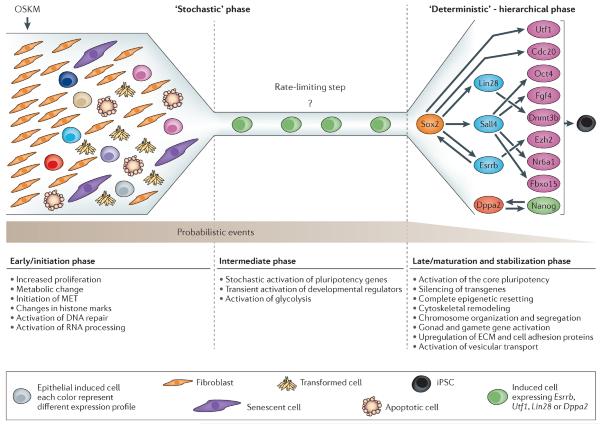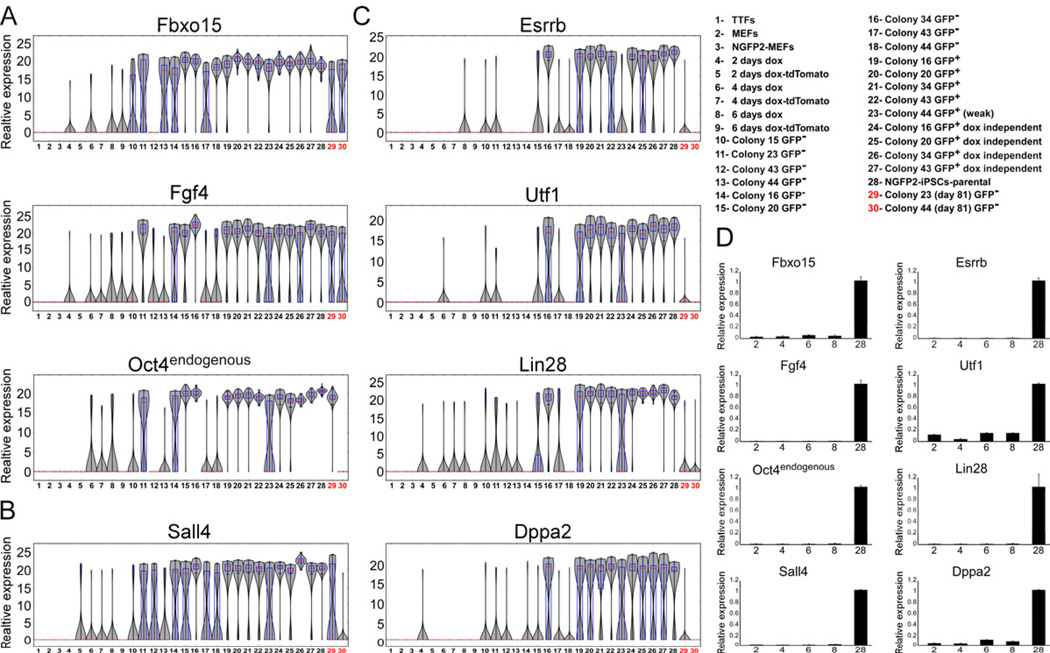Hana Benchetrit 1, Shay Herman 1, Niek van Wietmarschen 2, Tao Wu 3, Kirill Makedonski 1, Noam Maoz 1, Nataly Yom Tov 1, Danielle Stave 1, Rachel Lasry 1, Valery Zayat 1, Andrew Xiao 3, Peter M Lansdorp 4, Shulamit Sebban 1, Yosef Buganim 5
- PMID: 26412562
- DOI: 10.1016/j.stem.2015.08.006
Abstract
Induced pluripotent stem cells (iPSCs) undergo extensive nuclear reprogramming and are generally indistinguishable from embryonic stem cells (ESCs) in their functional capacity and transcriptome and DNA methylation profiles. However, direct conversion of cells from one lineage to another often yields incompletely reprogrammed, functionally compromised cells, raising the question of whether pluripotency is required to achieve a high degree of nuclear reprogramming. Here, we show that transient expression of Gata3, Eomes, and Tfap2c in mouse fibroblasts induces stable, transgene-independent trophoblast stem-like cells (iTSCs). iTSCs possess transcriptional profiles highly similar to blastocyst-derived TSCs, with comparable methylation and H3K27ac patterns and genome-wide H2A.X deposition. iTSCs generate trophoectodermal lineages upon differentiation, form hemorrhagic lesions, and contribute to developing placentas in chimera assays, indicating a high degree of nuclear reprogramming, with no evidence of passage through a transient pluripotent state. Together, these data demonstrate that extensive nuclear reprogramming can be achieved independently of pluripotency.









